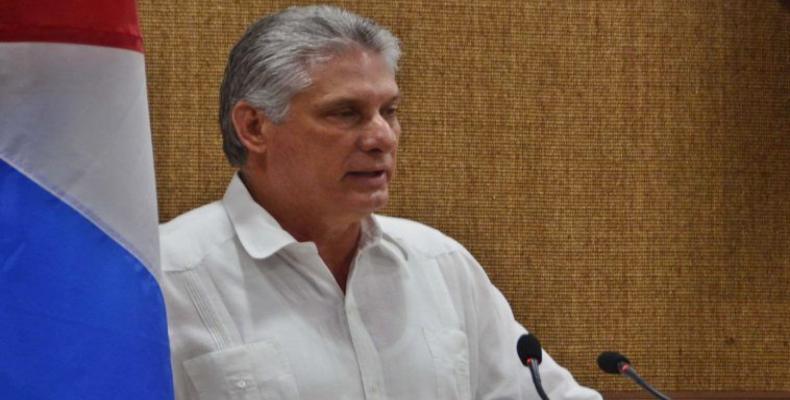Havana, January 28 (RHC)-- Cuban President Miguel Díaz-Canel headed a meeting on the introduction of young people into the labor market as well as in the process of their professional development.
The Cuban president was informed of the present situation and perspectives of technical and professional development, as well as the links of institutions with the formation of university students, qualified workers, middle level technicians and recent graduates.
Other issues discussed were the development and improvement of study programs and the introduction of young people into the professions.
Cuban Vice-president Roberto Morales highlighted the need for investments made in Cuba have the required professionals and in that sense, mentioned the Special Development Zone of Mariel.
Also, participants stressed that university students are the natural reserve for scientific research and innovation.
Raul Alejandro Palmero, president of the Federation of University Students, asserted that the presentation answered most of the agreements resulting from the ninth Congress of the organization, but warned that the future it depends on its accomplishment and control.
In his closing words, Diaz-Canel said that a qualified workforce was a necessary investment for the country and highlighted that the essential tools for development lie in the formation of high-level technicians motivated to create, the use of information technologies and social communications.
Díaz-Canel chairs meeting on professional formation in Cuba

Related Articles
Commentaries
MAKE A COMMENT
All fields requiredMore Views
- Editor of Pulitzer Prize-winning U.S. newspaper fired over cartoon deemed pro-Palestinian
- Report reveals Israeli soldiers are selling loot stolen from Gaza and Lebanon
- Those are my father's eyes / 65th anniversary of CIA sabotage explosion of La Coubre in Havana Bay
- President Díaz-Canel highlights Cuba's foreign policy
- Donald Trump threatens Palestinians, giving them what he says is the last chance to leave Gaza or die

